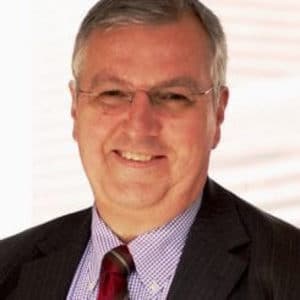
Stewart Aldcroft, Hong Kong resident, veteran of the Asian asset management industry and member of the FBC Advisory Council.
In my previous Letter from Hong Kong, I had noted that the business market had begun to reopen following the removal of all border restrictions and also after removal of any need to wear facemasks.
I can confirm that in Q2 of 2023, there has been a major rise in activity, we have had more than 10m tourist visitors since January and that everything is now alive and well and bursting with high expectations.
So that’s the good news out of the way!!
The finance industry has been greeting many more overseas visitors during Q2 than it has had for the last three years. Most major businesses have had their global CEOs visit, to remind them of the corporate message. Many of these same CEOs also took the time to visit China and get some first-hand knowledge of what’s going on there, rather than listen to the ramblings of a US Senator that has never been further East than Europe (or West than Hawaii). I might also take issue with much of the global media here, as they too seem to prefer negative China stories received from biased politicians, rather than seek out the truth by actually visiting the region.
Hong Kong is Back. People are meeting!
We have also seen multiple events occur in the last few months. Many trade and industry events held in Hong Kong have attracted upwards of 100,000 attendees. In terms of global events, there was G7 in Hiroshima, Japan, which enabled many global leaders to show their countries that Asia is open again.
More locally for example, Deacons, the leading fund management industry lawyers, had over 400 attendees at their annual regulatory event. A few weeks later, the Hong Kong Investment Funds Association also had around 400 attendees for their annual seminar. A predominantly hedge and alts event attracted almost 100 participants. Even the local chapter of ALFI had almost 100 attendees at a regulatory update breakfast meeting. Different crowds, but similar overall topics. Hong Kong is back in business. People want to see each other, meet, talk, network. Forget Zoom. You need to be here now to participate!!
Fund flows are slow.
All this said, anecdotal evidence suggests that business flows into mutual funds are still a long way short of where they used to be, and that the industry is still waiting for there to be a thematic breakthrough on markets for end-investors to start pouring their money into funds again. The reality is that most retail investors in Hong Kong (and Asia for that matter) have missed out on the continued strong rise in the US stock markets and have also missed the rise in Japan, which has recently been hitting high points not seen for more than 30 years. Although the US market rise has been dominated by just seven stocks, interestingly, index investors might have done better than active simply because by default they were in those top tech stocks that are all now of companies with a US$1 trillion market cap.
Why is this? Over the last 25 years Asian mutual fund investors have gone from being relatively international/global in their fund choices, to being much more selective and more often than not, taking their lead from whatever, their local markets have been doing. And as the regional markets are dominated by China, and the Chinese stock markets have been very negative in the last couple of years, many retail investors have believed that ALL stock markets have been poor and thus held back from investing at all.
Can or will this change? Of course it can, but in my view, only when the Chinese stock markets are moving upwards strongly will the Asian region see strong flows into mutual funds again. A consequence of this is that many private banks and wealth managers, advisers to HNWI, are probably more heavily invested in hedge funds, alternatives and private equity products than at any time in the last 25 years.
China continues to confound and confuse observers
China continues to dominate our region and the geopolitical differences in ideology between China and the US, Europe, Japan, Australia continues to make headlines. For many of us who have lived in the region for any length of time, these are concerning as it has become increasingly clear that a lack of dialogue between the various sides has not helped to improve relations. We often ask “Why should China be like America?” it is obvious it can’t and won’t ever be like most western countries. It has had to forge its own way in the world, and for the most part has done a pretty good job. In the last 30 years almost 1 billion people have been taken out of poverty, have become economically active, have become well educated and now have a pride in their achievements that didn’t previously exist.
Almost daily now, the global media publish some report or comments designed to support negative attitudes towards China. In return, China responds with their own negativeness towards Western ideas and issues. This sort of “megaphone” diplomacy is distinctly unhelpful to the ordinary person on the street. It is incumbent on political leaders that they should meet and talk with their opposite numbers. They are not being asked to agree all the time, but to understand each other better would be a good start.
Family Offices still a competition
Within the financial world we have seen further promotion on the theme of setting up Family Offices in Hong Kong. As previously noted, Singapore has been promoting Family Offices for a few years now, it has offered attractive tax exemptions and concessions, and has facilitated a smooth and streamlined on-boarding to enable these to be set up in weeks rather than months. Hong Kong has tried to match Singapore in every way, to the extent that there are few material differences between the two locations. The perception that Mainland Chinese would prefer to have their family money beyond the reach of the Chinese Government, thus in Singapore rather than Hong Kong does exist, however, for Middle Eastern families and those from many other parts of the Asian Region, Hong Kong is proving to be a more attractive destination. This battle to win family office money still has a long way to run.
ESG and Impact Investing gather steam
Impact investing using the usual ESG criteria and then personalizing it, has also become more fashionable here. It is still a long way behind Europe and the US, but it is now a regular topic on the agenda of all investment related conferences, discussions and increasingly in RFPs from institutional investors. It is still true to say that Asian region investors prefer to make their investment decisions based on probability of higher returns than because they can feel better or feel they are doing some good with their money, but these attitudes are getting challenged more frequently than previously.
Summer blues
The summer is now upon us as well. This means daytime temperatures rarely falling below 32C, occasional bouts of heavy tropical rainstorms, possible typhoons and the constant whirr of air-conditioners. It also means many families taking time off, holidays back in their home countries. It is not unusual to have large numbers of staff away for three weeks or more at this time, and using trips to reacquaint themselves with Head Offices where they can.
For those of you interested in the regulatory side of things in the financial industry, it has become a bit more boring. The main regulators across the region have gone quiet, and often use this time to issue year-end reports. Both the HK SFC and the Monetary Authority of Singapore are due to publish reviews in the next month or so, which I’m sure will provide glowing accounts of their activities for the last 12 months.
Have a good summer!
Stewart Aldcroft




